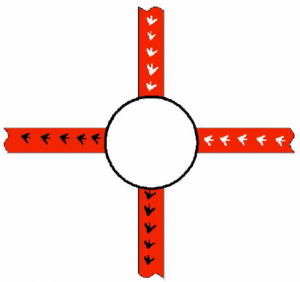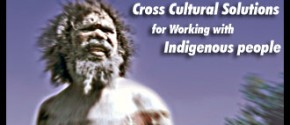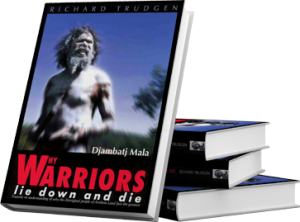Raypirri Ngaarra’ngur Romgurr Maagayakurr
The Rom law from the Yolngu Ngärra (Ngaarra) parliament promotes Raypirri (a discipline of the body, mind and soul) and creates a state of Mägaya (Maagaya – peace, tranquillity, harmony, completeness, health, peace, prosperity, fullness, perfectness, rest, safety and absence of agitation or trouble, protection and unity for all).
In 2005, thirty-eight traditional Yolngu (Aboriginal) laws were shared with the Australian English-speaking public for the first time in 200 years. These laws came out of a higher combined Dhuwa clan Ngaarra parliaments of northeast Arnhem Land.
Download the full 38 laws document here.
Laws that all Yolngu have assented to
These are some of the laws that all Yolngu people have assented to through a ceremonial process for thousands of years.
The original Australian legal system
Yolngu believe these laws were given to them by the Great Creator Spirit Wangarr, through the Creator Spirits, and they have maintained them down through many thousands of years till today.
Some will ask, “So if they have these traditional laws, why is there so much lawlessness”?
The lawlessness we now see is a very recent event. When I came to live with Yolngu in the 1970’s Yolngu communities were some of the safest, most peaceful and lawful places in Australia, especially for young single women. We never had to lock our homes or worry about being assaulted. And no one would steal anything.
These traditional laws are part of the original Australian legal system that is being undermined today when the Territory and federal government continue to act as though no original Australian law is operating in Yolngu and other Aboriginal communities across the NT.
Massive confusion
Most of the lawlessness we now see in Aboriginal communities and major centres comes from very confused, angry Aboriginal youth. A product of the failed relationship between the traditional First Nations people and the mainstream English-speaking Balanda people.
This stems from an Intergenerational Transfer of Confusion about the contemporary “colonial” Balanda legal system, which has been handed down from the Yolngu parents and elders to their children. This confusion is due to a lack of good accessible information that they can understand in their own language, resulting in this powerless confusion, lawlessness, anger and kickbacks.
We need to remember that their parents and these young people speak English as a second, third or fifth language. And that some of their languages have only been working with English for about 80 years. This means they receive very little knowledge about the contemporary Australian legal and economic systems through normal English media and educational processes.
So they see the “sophisticated, wealthy Balanda” completely denying the original Australian law they have assented to. So from their point of view, the Yolngu see this colonial Balanda law as promoting lawlessness.
Disrespecting their political leaders
They also see Balanda governments showing disrespect and contempt towards their selected traditional political leaders and disarming the traditional peacekeepers/police.
In fact, these government structures don’t even know that these democratically selected ḏalkarra djirrikay (servants of the people) political leaders exist or that Djungaya, sworn peace officers were already there in Yolngu communities before the Balanda police came and pushed them aside.
Their traditional law system has just been written off as primitive by the English-speaking British culture mainstream.
Yes, the government has attempted to understand this system by hiring consultants to explain the traditional law system to the government. Unfortunately, these consultants do not even understand a kindergarten level of traditional law or the original Australian democratic legal system and language. So they come back with kindergarten results.
Report that fits the Balanda colonial mindset
The consultants’ reports fit the Balanda bureaucratic mindset. They see Aboriginal people with the view that traditional law is very simple, “just a rule of elders”, which was the original settler’s view of Aboriginal people. No change or deeper understanding has occurred in over two hundred years. A view that is wrong and that creates the lawless mess we now see.
Because of this flawed view, the Governments end up talking to the only Yolngu leaders they know. These are the pseudo-leaders in the Balanda structured corporations. These corporations operate and exist in the English / British governance system so, they are easily identified but have no legal authority according to the Yolngu Madayin law system that the Yolngu people have assent to.
These leaders are usually not their traditionally selected leaders; however, some do play a dual role. The people usually see them as part of the Balanda colonial takeover system. The people have not empowered them to represent them, so they have no legal authority according to Yolngu Madayin law.
These actions by governments reinforce the view that the contemporary Australian legal system is lawless.
Youth Gangs now taking over communities
The result of this is that now youth gangs are taking over communities. They hate their own parents, people and traditional leaders for being “so backward”. Not able to access a lot of money like the Balanda seem to be able to access at will. So they want no more of their age-old big peace law and culture. They want Balanda culture and to be able to get a piece of the wealth action. Money, vehicles and things whenever you want them.
They then also start hating the Balanda mainstream “colonial” system. This is because they feel they are being left out of the access to government money that they think all Balanda can access at will. When asked why they were doing break and entries and destroying community property, they say, “Because we hate Balanda”. When asked why they hate Balanda, they say, “Because Balanda hate us”.
That is, they believe that all Balanda get their houses and business money from the government. They do not know that businesses have to pay for their business, stock, and wages. They believe it all comes from the government.
Some even asked why they have to charge us twice when they buy things in their shops. Many believe that the storekeepers put the takings from their shop/business straight into their own pockets. They do not know that the bills have to be paid and that there is no free lunches.
Defining the confusion
This confusion is not easily defined. When it is analysed, it is not so much what the people know or do not know. It has more to do with the confusion the people have because of the massive lack of information about the subjects they need to investigate through their own language and worldview.
This leads to a mystified mindset where they give up trying to understand the system that makes no intellectual sense to them in their language and worldview. It is like a form of intellectual numbness. Many just go off and get drunk or play cards all day because of the hopelessness this lack of information creates.
However, young people are more likely to act against the Balanda colonial system they see as cutting them out. So we now have groups of angry young Aboriginal youth hitting back against the system wherever they can.
If the world operated on Yolngu law
To get a sense of what I am talking about here, just think how hard it is for mainstream English-speaking Balanda to understand Yolngu culture, law and economic systems.
Well, imagine what it would be like if that law and economic system were the mainstream operating system in Australia today. How would Balanda cope with and understand these systems?
They would have to learn Yolngu Matha (the people’s language) to understand them. Now it might be easy to learn some of their everyday language, but learning the high-level gurraŋay matha academic language would stop most people. Just like the high-level academic English language stops most Yolngu and other traditional Aboriginal people from accessing the high levels of English. And this is where the legal and economic language is.
The Intervention to destroy Yolngu people
Since the Intervention into Aboriginal communities in the NT the confusion has exploded. It is as though the government went out of its way to make the Yolngu and other Aboriginal Communities lawless hellholes.
English-speaking Balanda have doubled in number on all these communities through the Intervention, with employment rates for Yolngu at rock bottom for the first time in the last 200 years.
If young Aboriginal youth are to ask any of these Balanda where they get their “big new Toyota”, the house they live in on community or their wages and all the gear they have in youth, and other programs, the Balanda will say from the government. So the confusion just grows and grows as more government money is rolled out for all the wrong programs.
Silly programs that are trying to “keep the youth busy” are very destructive. These programs create a competition between the family and the highly resourced Balanda programs that attract young people away from their family unit. They make the family unit look very un-enticing.
The people need programs that build family unity and allow the highly disciplined traditional programs to bring law and order back to communities.
Then the ABC and other media also add to this confusion by saying that all the problems in these communities come from overcrowding and the lack of government money to build more housing.
Give the people answers to their questions
People need answers to their questions about the different subject areas they need to integrate. Not paternalistic information fed to them in as good as a foreign language, English. The information needs to allow them to investigate their way through and out of the confusion around law, economics and health issues. Of course, this has to be done through their own language and worldview.
The whole community needs access to information programs where they can drill down through different subjects until they become clear. These programs need to speak to older adults in the community. The decision-makers and traditional teachers, not the other way around.
Trying to initiate change through young people is destructive
Trying to bring about change through the children and youth is very destructive and destroys family and community unity. In fact, these are sickly paternalistic programs that have never worked in 200 years, except to destroy Aboriginal communities and people.
Programs aimed at changing Aboriginal communities through the children and the youth are part of the inherited colonial model that leads to Structural Violence between the mainstream and the First Nations people, which is the underlying cause of all violence now seen in Aboriginal communities.
It is the elders who have been the teachers in traditional Aboriginal communities for thousands of years. So they are the ones who need access to quality information in their own language so they can be traditional teachers again. These information programs must be built on their curricula needs using their highly effective educational language.
Programs like you can see on our Why Warriors Yolngu Learning Site.
Many say we need to work for generational change
Well, the generation change that the present Balanda colonial system has delivered is from lawfulness to lawlessness. From functioning communities to dysfunctional ones. From high levels of employment to massive unemployment. From international trade and business development to almost no business development and international trade. From very low levels of mortality and morbidity to the highest disease and death rates in the world. From low jailing rates to the highest imprisonment rates in the world. From a hungry desire for education to almost no appetite for education or training.
How many more disastrous world records in human disempowerment does Australia want to deliver to their First Nations people just because they do not speak English and understand British culture?
For further reading, please also read “Madayin Law System; The Assent Law of the Yolngu of Arnhem Land. Traditional Aboriginal Law”. Click here
Please share as widely as you possibly can.




